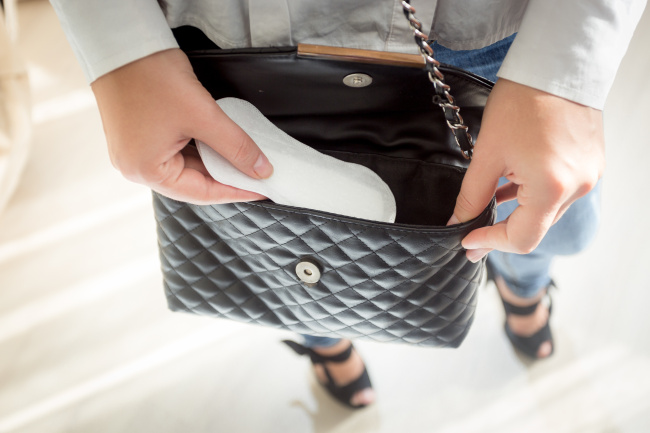Initiatives for girls should take into account the sensitivity of the issue and respecting their dignity should be a top priority, the UN Population Fund told The Korea Herald.
Korea’s Health and Welfare Ministry has recently come under fire after launching a program that requires girls from poor households to visit local health centers in person and write down their family background to be eligible to receive sanitary products.
Faced with simmering criticism, the ministry changed the rules to allow them to apply via email and have family members collect the products, while health center officials could deliver them upon home visits.
 |
(123rf) |
“Menstruation is a fact of life, but we must work on one hand to ‘normalize’ it and remove any vestiges of embarrassment from it, and on the other hand we must be mindful of sensitivities and provide services in an environment that is properly respectful and dignified,” Kim Sae-ryo, the UNFPA’s regional partnerships adviser to Korea and China, said in an email interview.
“At UNFPA we have a saying when it comes to providing essential supplies and services, such as sanitary pads, to beneficiaries -- ‘Dignity First.’ We must take into account the basic human need to conduct oneself with dignity.”
Based in Beijing, Kim is tasked with facilitating cooperation between the agency and the Korean government.
The UNFPA offered assistance to Korea from 1974-91, and now Seoul provides funds and resources for the organization’s programs in other countries, such as on maternal health, adolescent girls’ sexual and reproductive health, obstetric fistula and population data.
In its flagship report released Thursday, the UNFPA examined the potential future impact of investment in education and health care for 10-year-old girls, calling it “the world’s best investment.”
The paper, the State of World Population 2016, noted that empowerment may triple a girl’s lifetime income, but 62 million adolescent girls were not in school today, while 16 million girls between ages 6 and 11 will never even start school. That is twice the number of boys.
The Park Geun-hye administration’s “Better Life for Girls” initiative caters to the cause as it boosts the importance of education and sexual and reproductive health services for adolescent girls in some of the most vulnerable nations, Kim said.
“A young girl’s life may be one characterized by poverty and powerlessness, or full of potential and choices. While the world has done better for boys, statistics show that 10-year-old girls are among the population groups most in danger of being left behind,” she said.
“A life cycle approach to development is essential -- beginning before birth itself, focusing on the needs and development of children and young persons with a special emphasis on the young girl, and thus paving the way for sustainability and prosperity well into a healthy old age.”
The New York-headquartered fund has been carrying out an array of medical and maternity programs in North Korea including a $250,000 project newly launched to help it cope with flood damage.
Though the communist state’s nuclear ambition has dampened global donor sentiment and thus posed funding challenges, a new banking channel, now being trialed, would help resolve the difficulties, she noted.
“The closure of the banking channel did pose a challenge to the wider UN system compelling many agencies to adopt a cash conservation mode. This included a reprioritization of activities whereby monitoring is identified as a priority activity,” she said.
“As for the recent flood-response program, a team of rotating UN national and international staff are based in Chongin, the closest city to the affected counties to monitor activities and ensure that supplies are distributed to those, most in need in the affected areas.”
By Shin Hyon-hee (
heeshin@heraldcorp.com)








